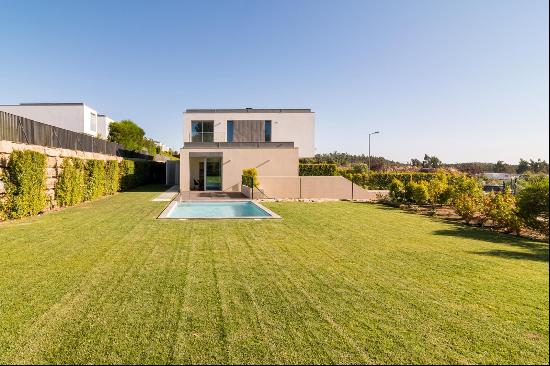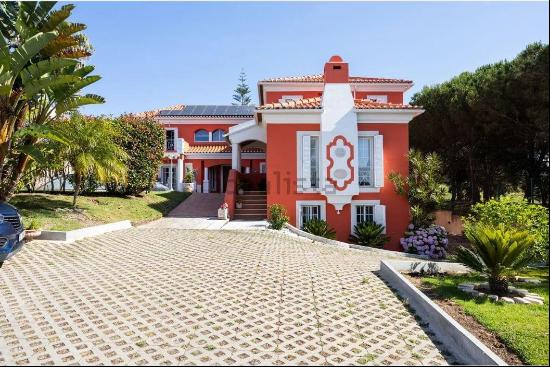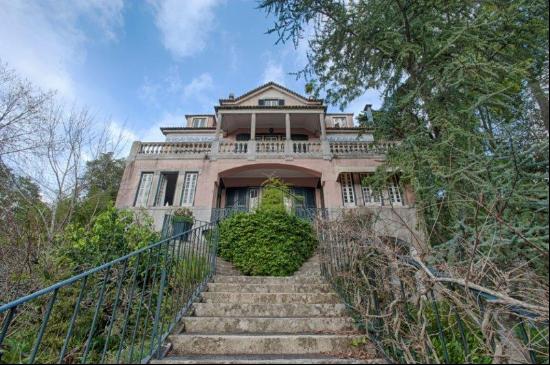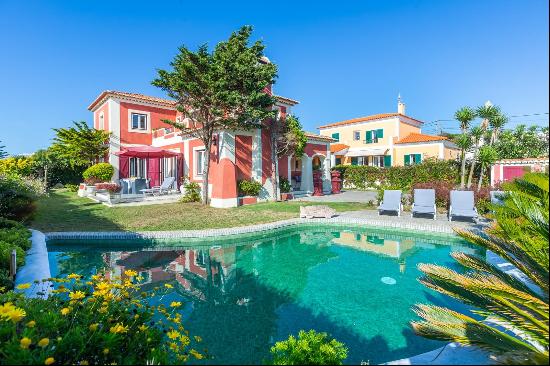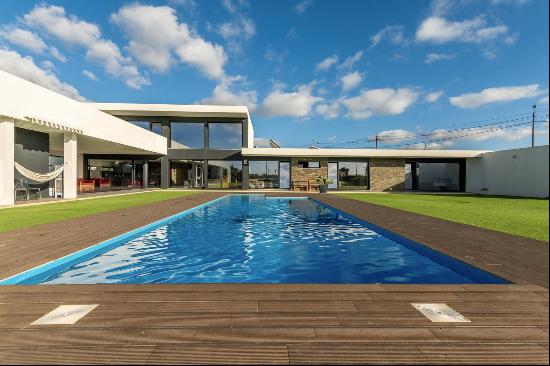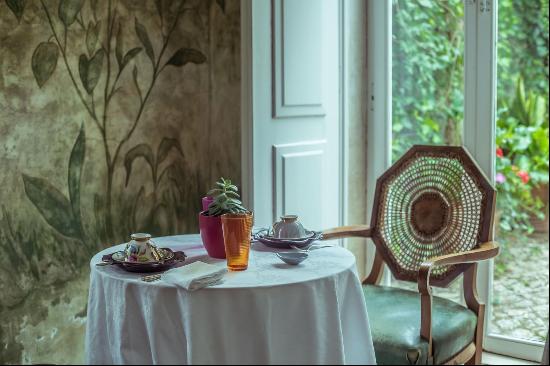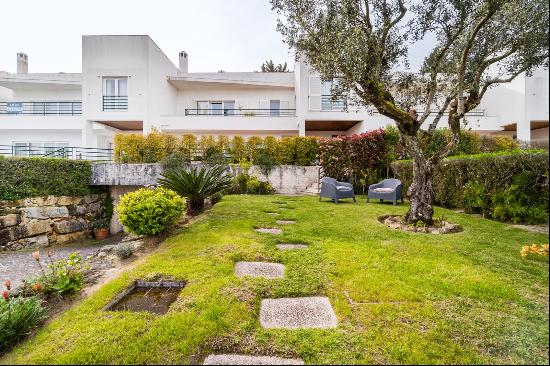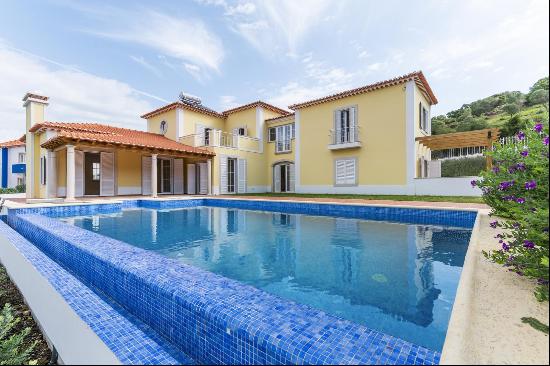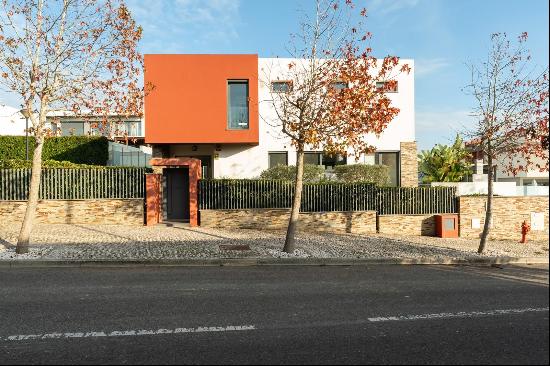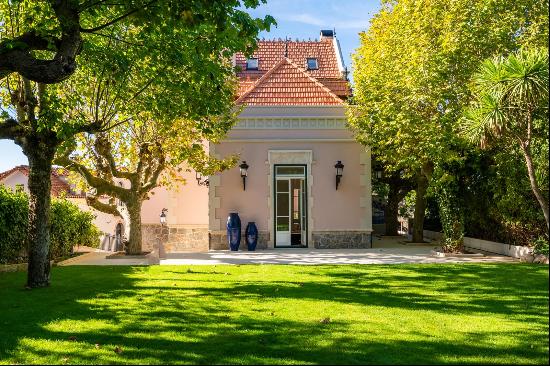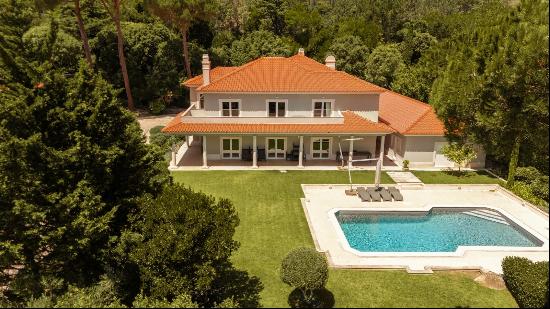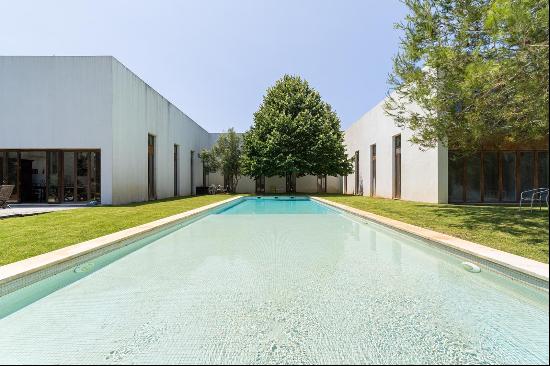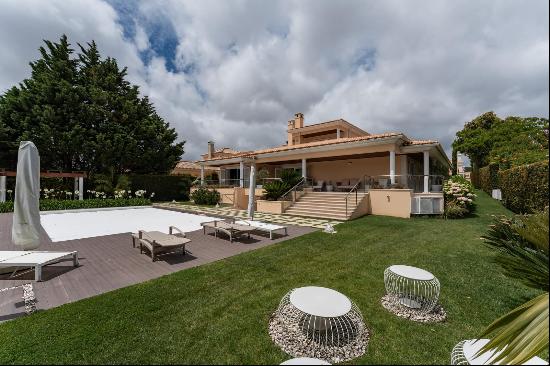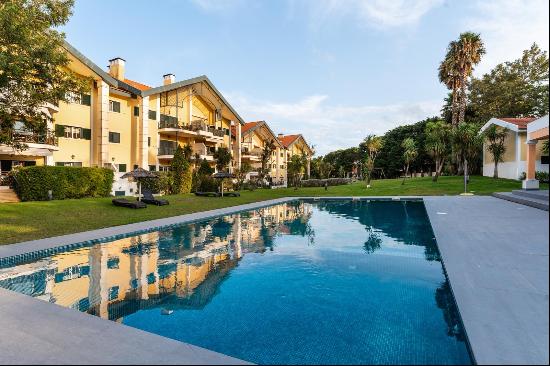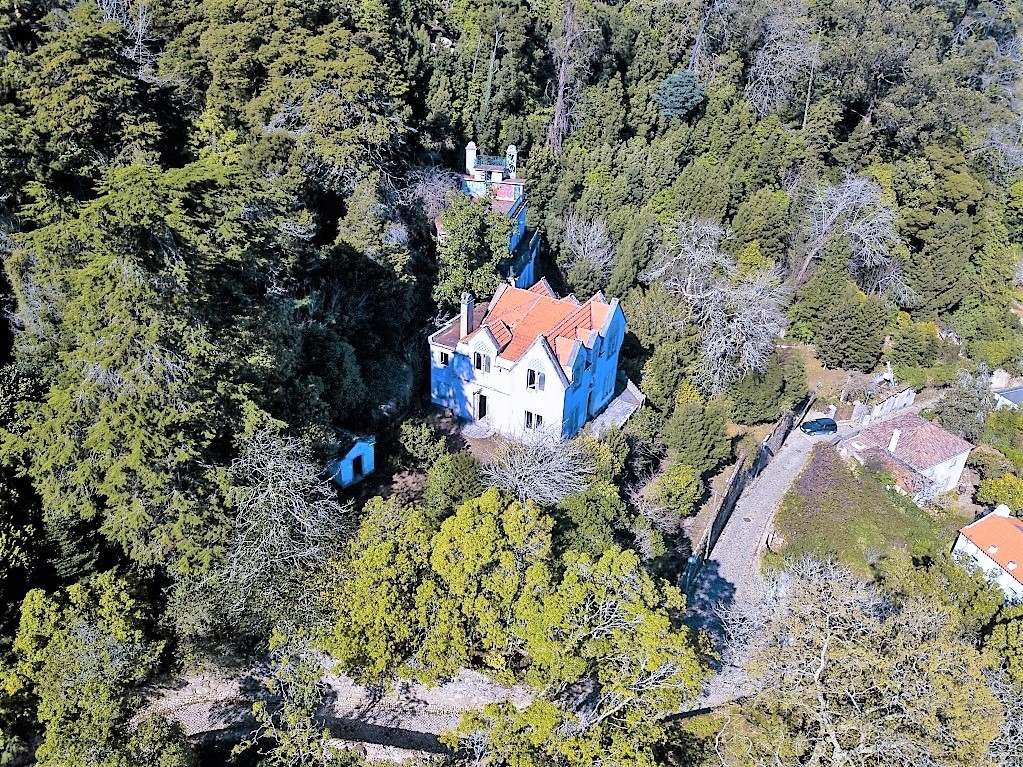
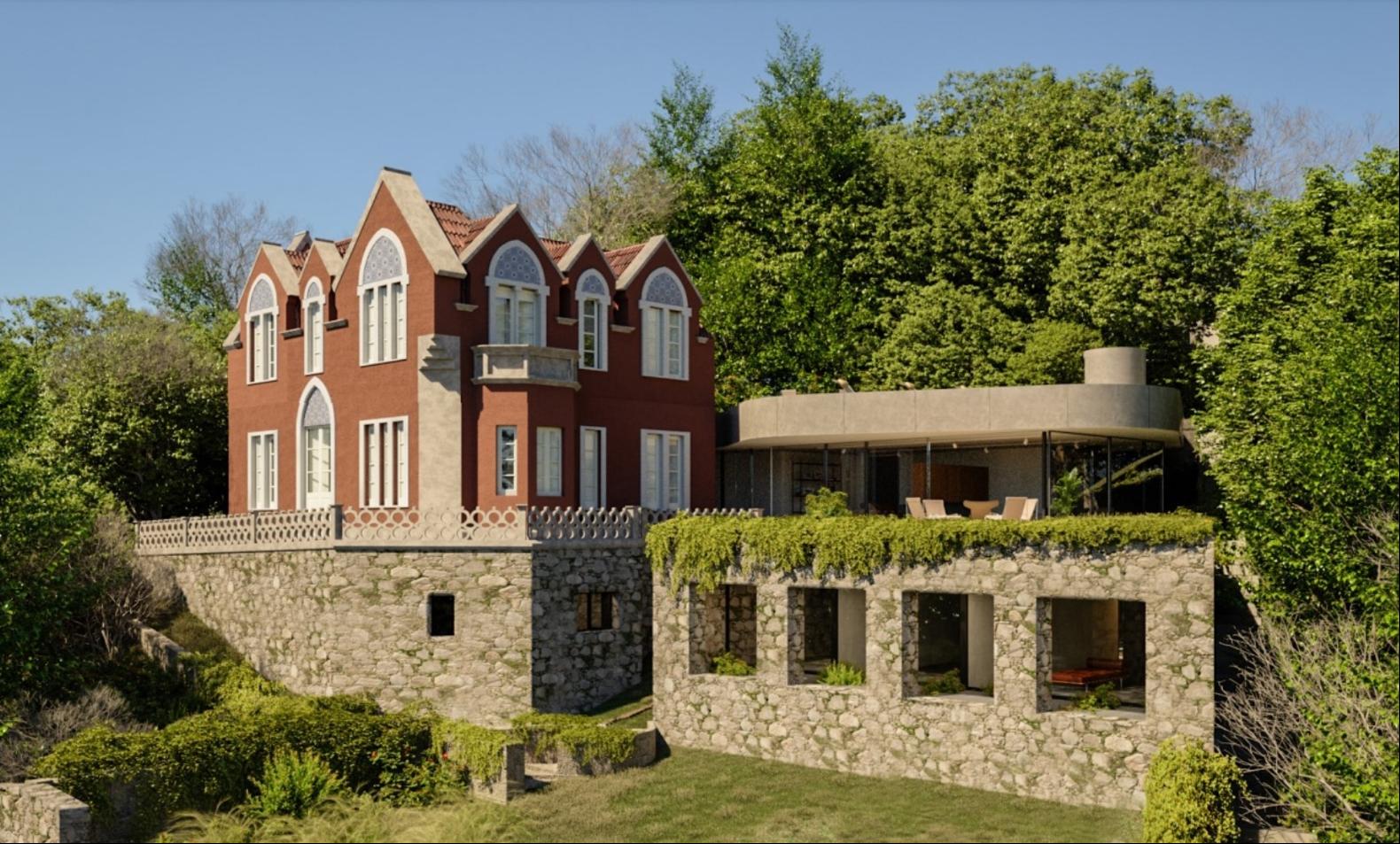

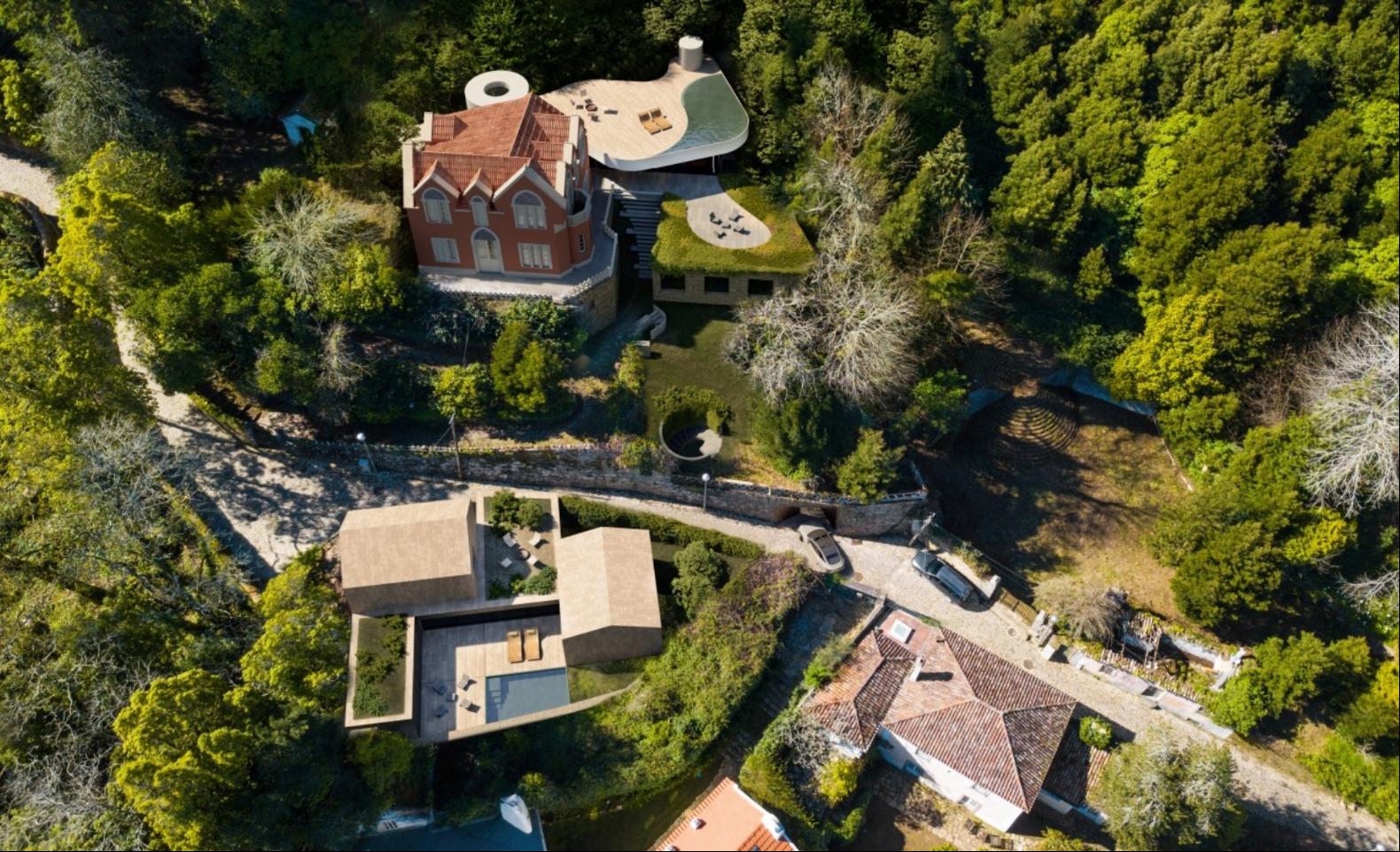
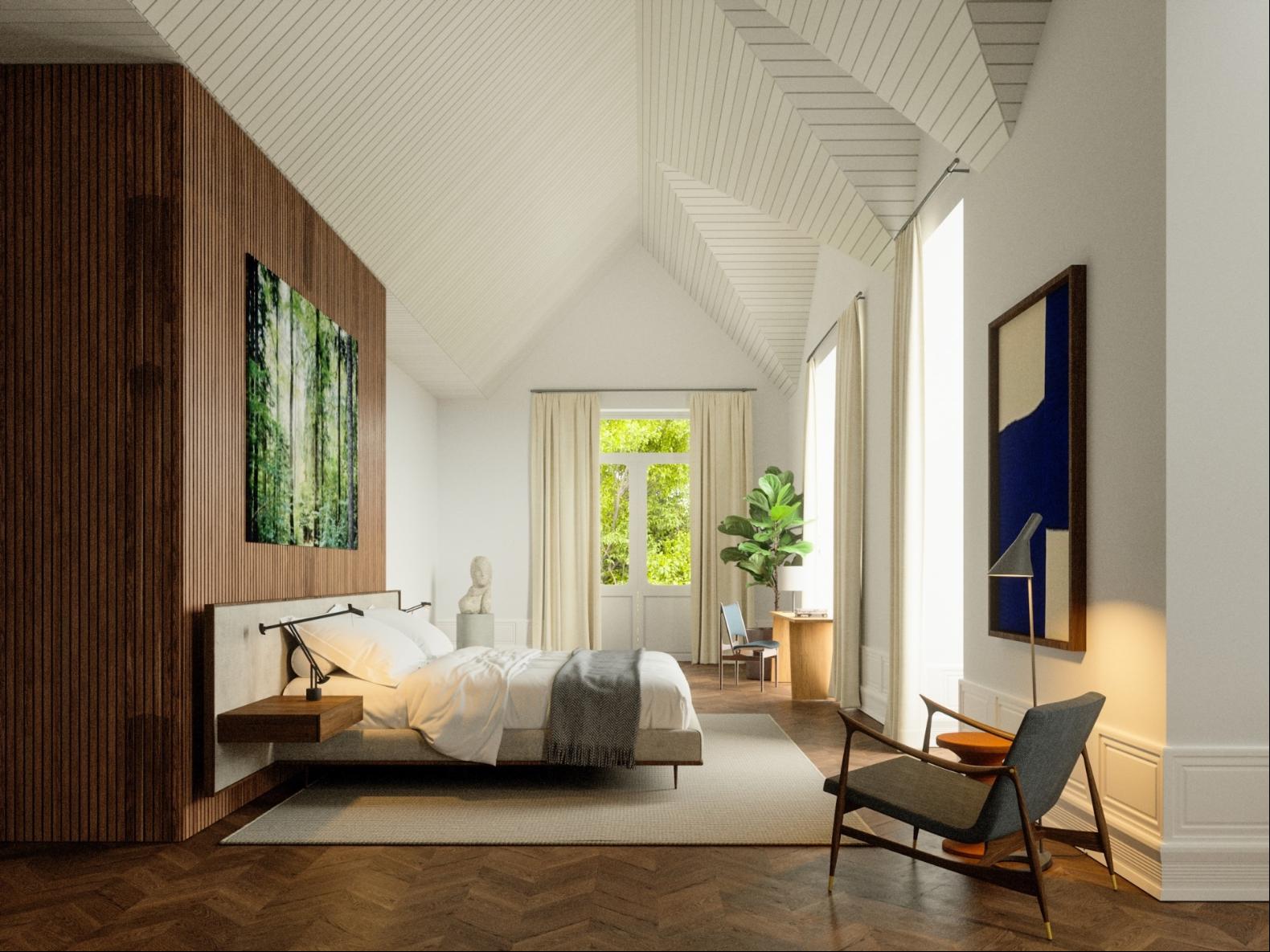
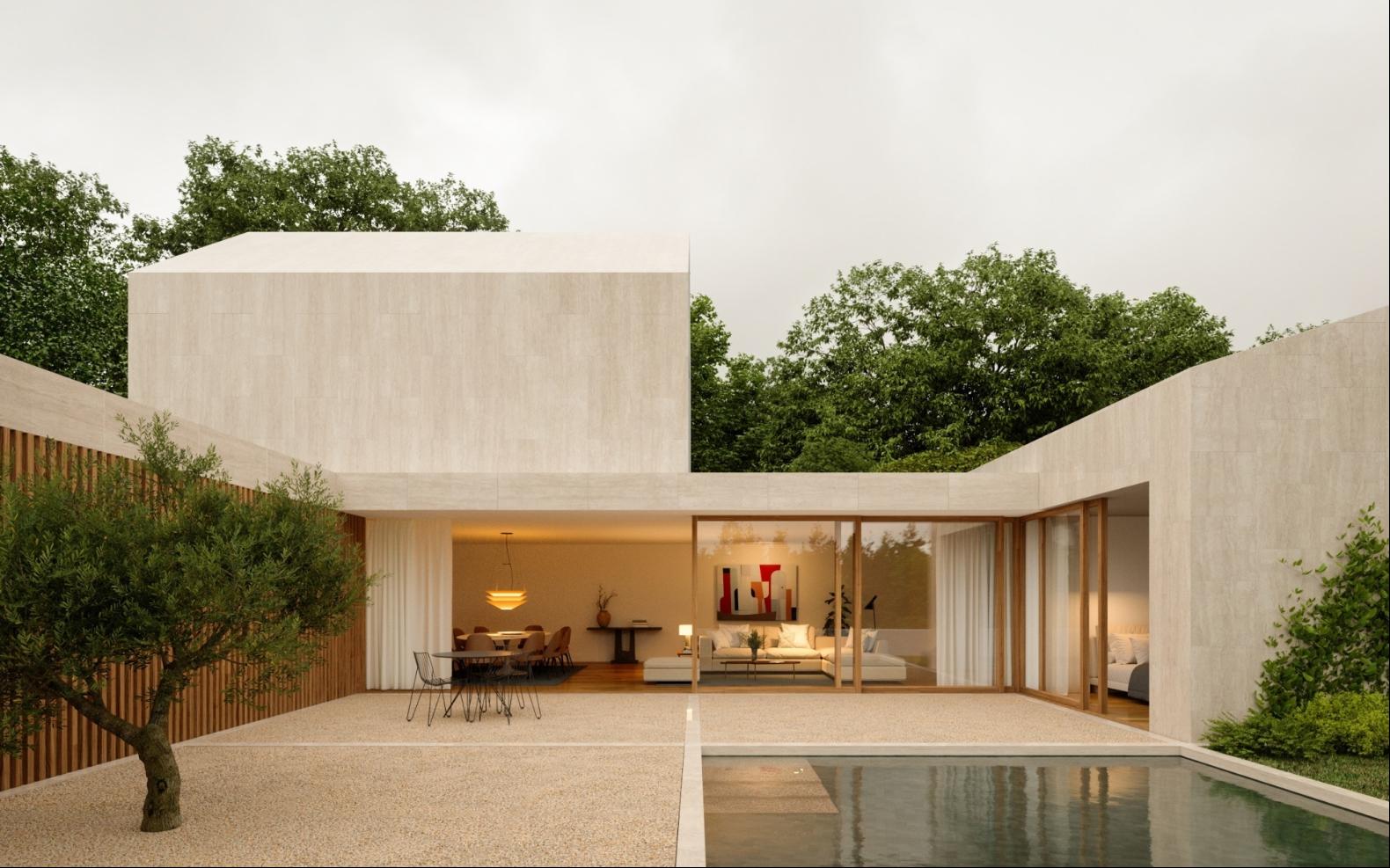
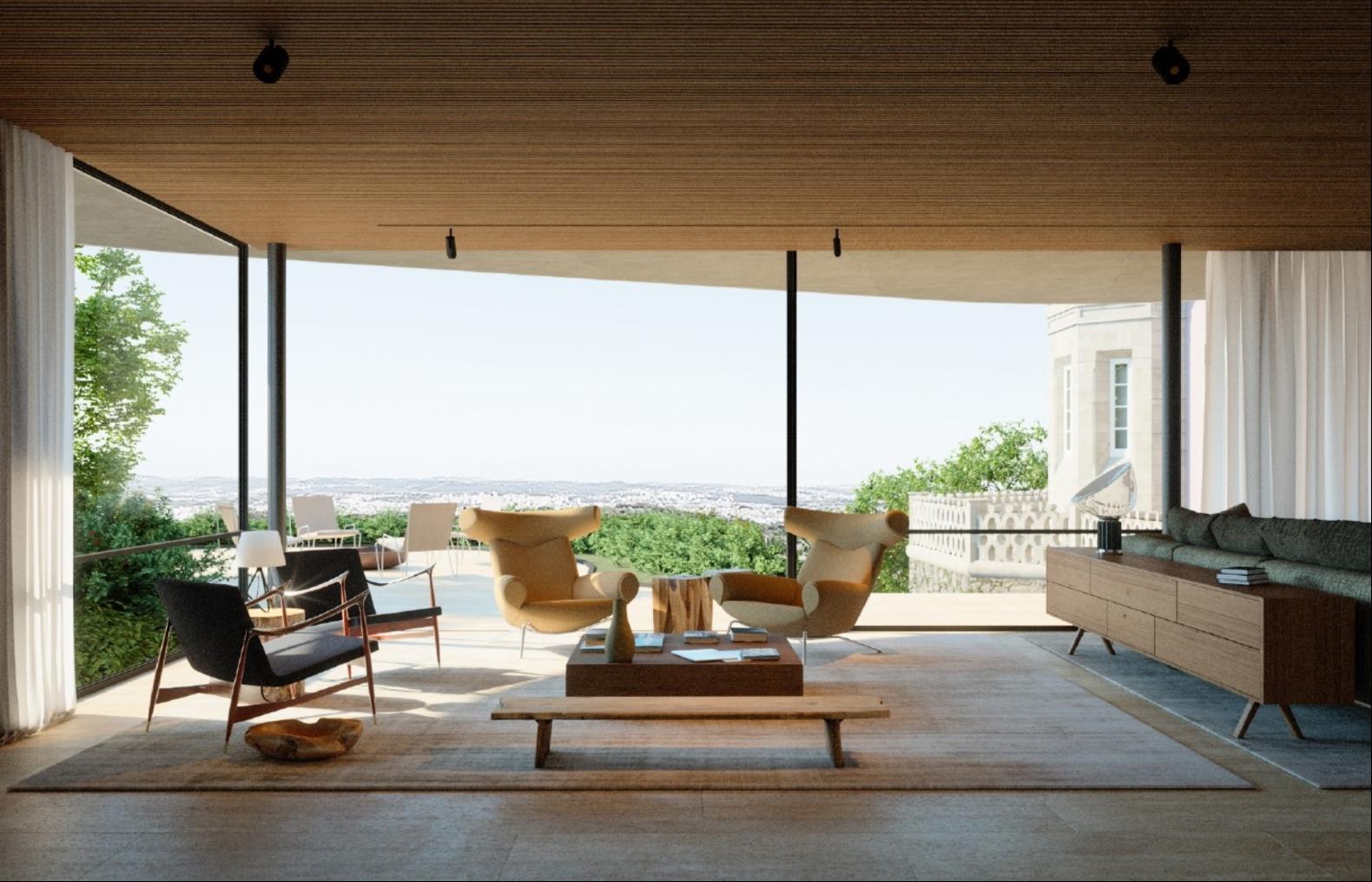

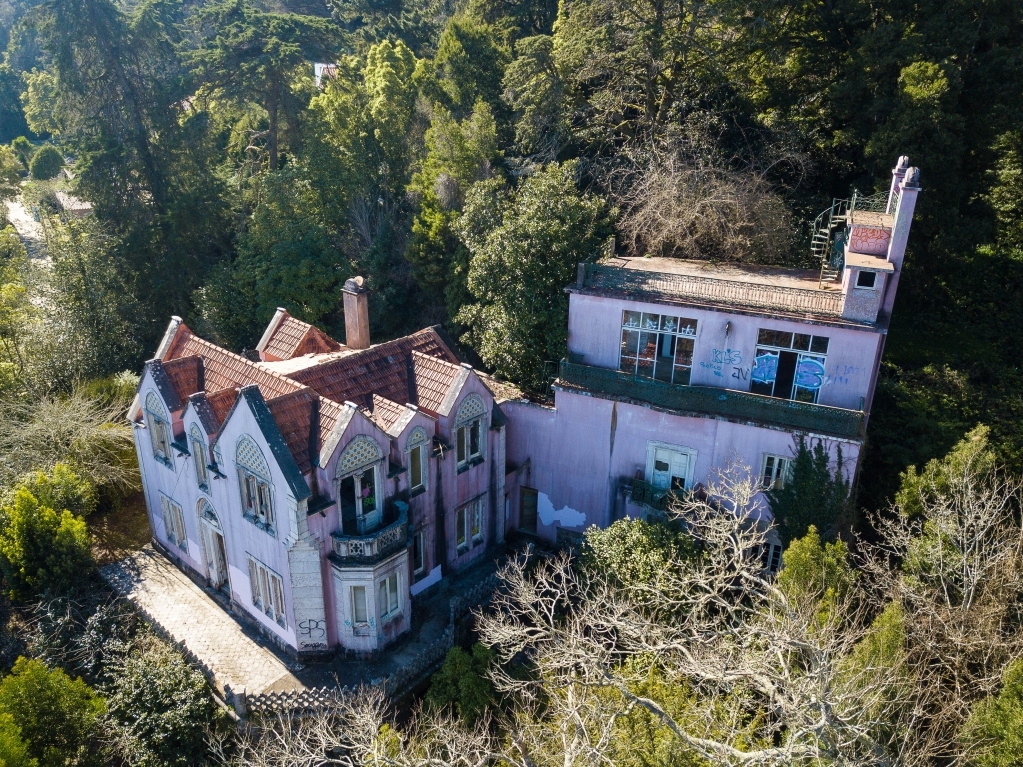
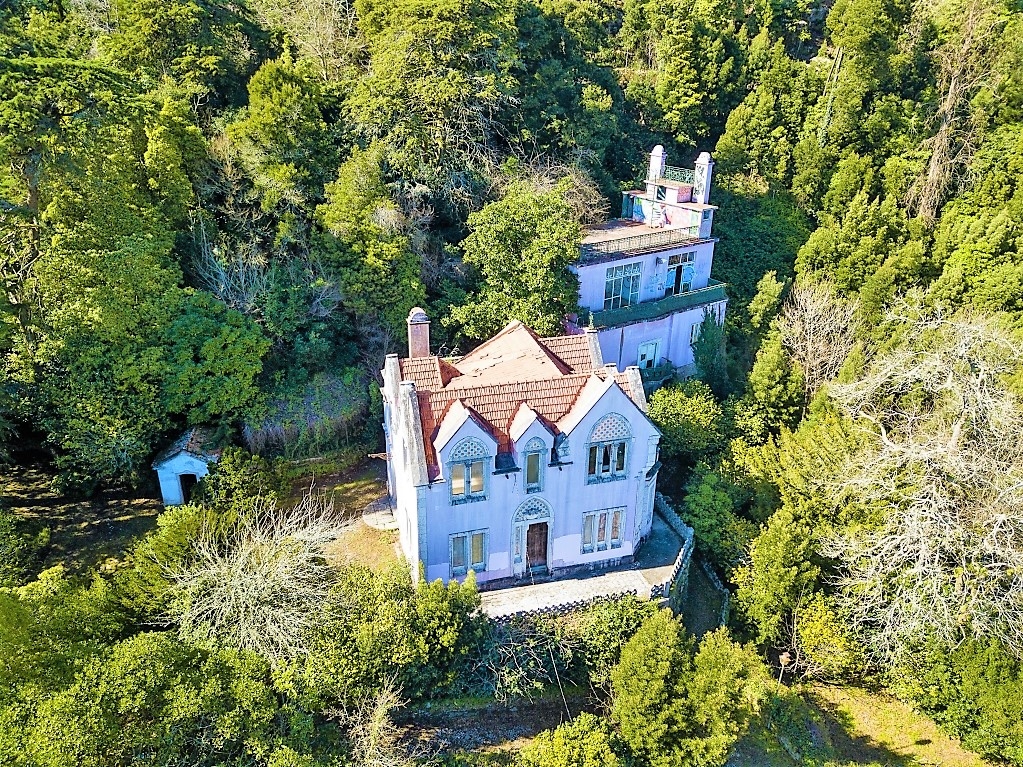
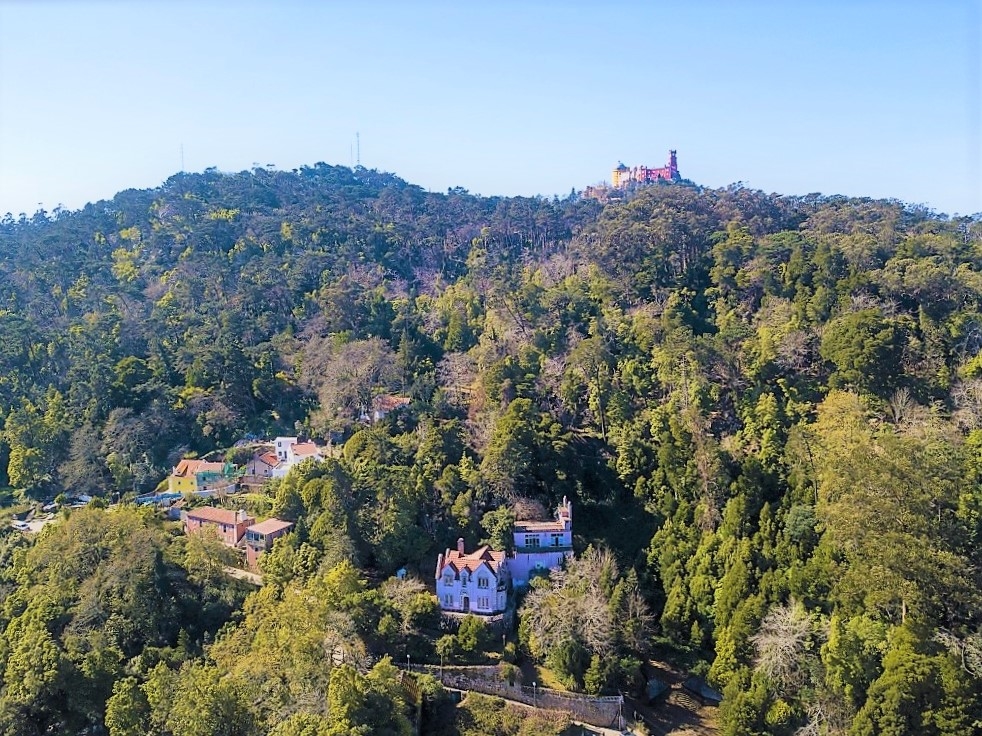

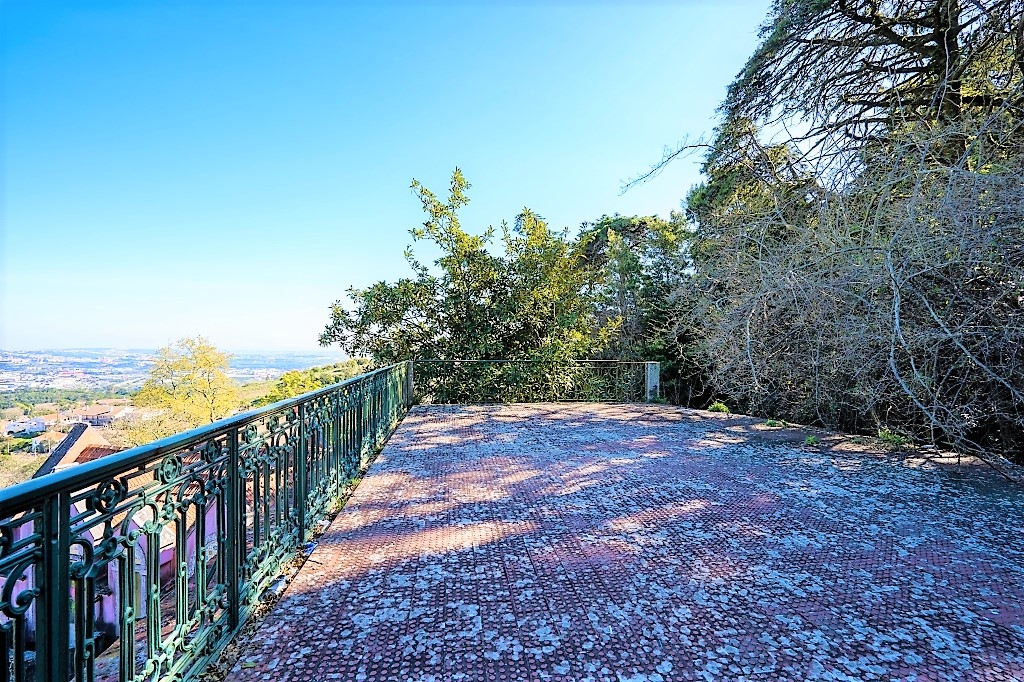

- For Sale
- EUR 1,950,000
- Build Size: 10,290 ft2
- Property Type: Single Family Home
- Bedroom: 9
- Bathroom: 6
10 minutes from the historic center of Sintra and a few hundred meters from the Moorish Castle, the Miradouro de Santa Eufémia and the Palácio da Pena, on a vast plot of 8,260m2 with gardens, lakes and lush vegetation in the National Park Sintra-Cascais. The main building, a Palacete with the date 1810 inscribed on the majestic entrance, features tiles from the time, along with intricate details in stone, which punctuate its secular facade, full of history surrounded by the buconic landscape of the natural park of Sintra, classified by UNESCO in 1955 as a World Heritage Site. Spread over 4 floors, it is connected to a secondary body, which is proposed to be demolished and replaced by a current building camouflaged in the beautiful garden that characterizes the landscape. The building complex, totaling around 1,100 m2, also has a pavilion, a small chapel, a garage and a secondary house (in ruins) outside the complex, with a private patio, and a water reservoir with a capacity of 763 m3 , all for full renovation. The beauty and mystery of Sintra triggered, especially at the end of the century. XVIII, a search by foreigners in order to settle in this area, mostly by the English. In 1787, the English millionaire William Beckford arrives in Sintra to live in the Palace of Seteais. The last wave of great lords of Monserrate belonged to the English and the Cook family in particular. In 1846, Francis Cook, a wealthy textile entrepreneur, built the palace of Monserrate and settled here from the 1860s onwards. In 1870 he was made Viscount of Monserrate by D. Luís. Quinta das Camélias is an integral part of the history of Sintra, dates back to the 18th century (1810) with the construction of the Chalet, the pavilion and the garage, its main proximity points being the Moorish Castle, who lived there until 1147, when Since Sintra was handed over to D. Afonso Henriques, strategically and in order to defend the territory, the management of the village of Sintra and its term was donated to Gualdim Pais, master of the Order of the Temple, receiving a charter in 1154. With the settlement of Christian populations, the old Islamic Quarter gave way to a medieval village that lasted until the 16th century. XV. In this Medieval village is integrated the Church of São Pedro de Canaferrim, built between the two belts of walls. We cannot fail to mention the icon Palácio da Pena, whose construction dates back to the 12th century, when there was a chapel dedicated to Nossa Senhora da Pena where, in this same location, King Manuel I had a monastery built, the Real Mosteiro de Nossa Senhora da Pena. Senhora da Pena, later handed over to the Order of São Jerónimo. In 1850, after the religious orders were extinguished, D. Fernando II acquired the Convent of São Jerónimo and transformed it into the romantic Pena Palace, which encompassed a vast park of exotic trees. With the implementation of the republic in 1910, it was classified as a National Monument. This emblematic project is in the final appraisal phase, Request for Prior Information by OODA for the reconfiguration of the Palacete set and secondary body, with a total gross building area of 1086.22m2 (useful area of 980.73m2), as well as the highlight is the conversion of the Garage into a detached house with garden and private pool with a total gross building area of 160 m2 (useful area of 132.66 m2). Your next story-filled project! #PAL_149



